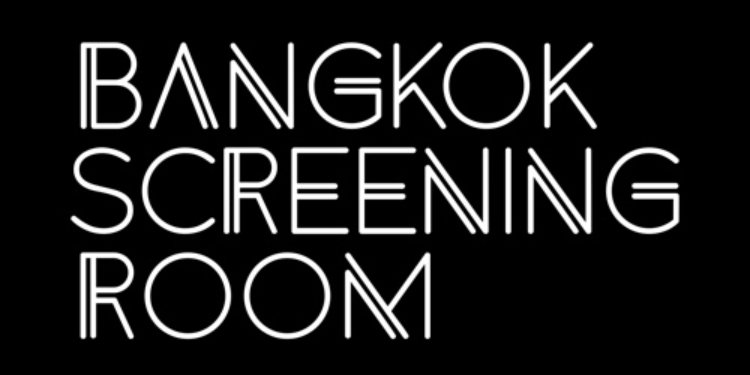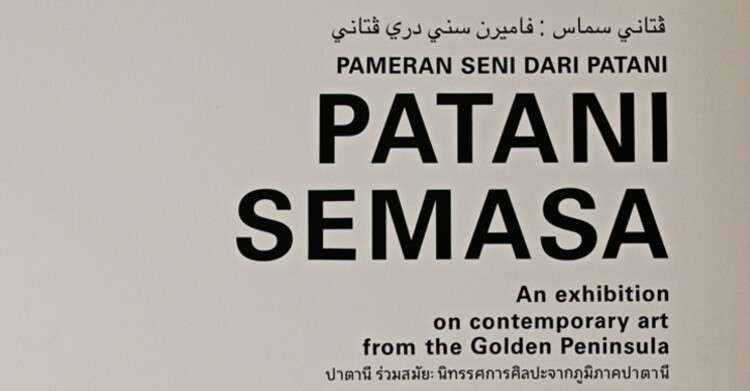Thunska Pansittivorakul’s latest film is the feature-length documentary
Homogeneous, Empty Time (สุญกาล), co-directed with Harit Srikhao. The title is a phrase from Walter Benjamin’s essay
On the Concept of History (
Über den Begriff der Geschichte), though it was later used by Benedict Anderson in
Imagined Communities, his analysis of the construction of national identity and nationalism. The film, which is dedicated to Anderson, explores the roots of the nationalistic fervour that has taken hold in Thailand.
In his earlier films, Thunska has criticised individual politicians and generals, though
Homogeneous, Empty Time questions the country's entire national ideology (the tripartite motto ‘nation, religion, monarchy’) and the institutions that reinforce it. The film shows how nationalism and social order are sustained by pro-military and royalist media, with clips from Prime Minister and junta leader Prayut Chan-o-cha’s propaganda song
Returning Happiness to the Thai Kingdom (คืนความสุขให้ประเทศไทย), and a ‘Bike for Dad’ promotional video.
This is an ambitious film, examining the spread and impact of nationalism across Thai society and throughout the country. Thunska and Harit interview school pupils, Buddhist and Muslim worshippers, Village Scouts, and military cadets, revealing how nationalistic values are inculcated, absorbed, and passed from generation to generation. A Village Scout member expresses his love for the King, and a tear trickles down his cheek. Cadets say they’re keen to fight against Thailand’s enemies, but they’re speechless when asked who the enemies are. (It’s been thirty years since Thailand’s military has been involved in significant combat, yet its budget continues to rise.)
The interviews are juxtaposed with news footage revealing the ultimate consequences of unquestioning nationalism. Village Scouts vow to defend the monarchy. Cut to: scenes from the 6th October 1976 massacre, when the Village Scouts militia groups joined the army in attacking students at Thammasat University. Later, cadets pledge their loyalty to the country. Cut to: photographs of hazing rituals in which cadets are beaten and abused. (One interviewee says: “There is often news of soldiers getting beaten to death during training.” This is particularly topical, as army cadet Phakhapong Tanyakan died last month, and his internal organs were secretly removed before his body was returned to his family.)
Homogeneous, Empty Time is a brave and important film, directed while the country is being ruled by a military junta following
the 2014 coup. Criticism of the government is prohibited, and the
lèse-majesté law criminalises dissent. Also, according to
Truth on Trial in Thailand,
lèse-majesté is interpreted so broadly that it has included “cases which, increasingly abstract, referred to the broad power structures of Thai society.” It’s these power structures that the film examines.
Aside from the social and political content, the cinematography is also impressive. There are stunning drone shots of Bangkok’s Democracy Monument that open and close the film. (A photograph of Democracy Monument also appears at the end of Thunska’s short film
KI SS.) Thunska’s trademark sexual content is present in one sequence, in which an ejaculation is filmed in extreme close-up, rendered semi-abstract by the macro photography.
There are also moments that border on absurdity. At a Christian high school, a plastic baby Jesus sits on a stack of monoblok chairs, and pupils line up to kiss its foot. A Village Scout leader, wearing the world’s brightest yellow shirt, boasts of his meeting with the King: “I peeled a coconut for the King... And the King ate my coconut! A round of applause for me, please!”
The film has not been released in Thailand, and an invitation-only screening was cancelled following the
censorship of Harit’s Whitewash exhibition. As Thunska told me in an interview this year: “In 2009, my film
This Area Is Under Quarantine [บริเวณนี้อยู่ภายใต้การกักกัน] was banned from the World Film Festival. Since then, I decided not to show any of my films in Thailand.” Nevertheless, the filmmakers have exercised a degree of caution, by self-censoring one line: an actor from
The Wolf Bride (เจ้าสาวหมาป่า) says “in the story there are XXXXXXXXXXX and XXXXXXXXXXXX”, and the sound is muted, as it was in
Paradoxocracy (ประชาธิป′ไทย).
King Bhumibol passed away in 2016, though
Homogeneous, Empty Time was made before he died, and his image appears throughout the film, on billboards and public buildings. Thunska explained this to me earlier in the year: “because it’s a documentary, if someone questions me, I can tell them, ‘You can see something like that everywhere.’ But when I make fiction, if I put that picture in the film, I thought I could get some problems.” The King’s portraits are indeed ubiquitous in Thailand, though royal iconography has previously been cut from
Soi Cowboy (ซอยคาวบอย) and
Boundary (ฟ้าต่ำแผ่นดินสูง).
Thunska and Harit also co-directed the documentary
sPACEtIME (กาลอวกาศ). Thunska’s previous feature films are
Voodoo Girls (หัวใจต้องสาป),
Happy Berry (สวรรค์สุดเอื้อม),
This Area Is Under Quarantine,
Reincarnate (จุติ),
The Terrorists (ผู้ก่อการร้าย), and
Supernatural (เหนือธรรมชาติ).





